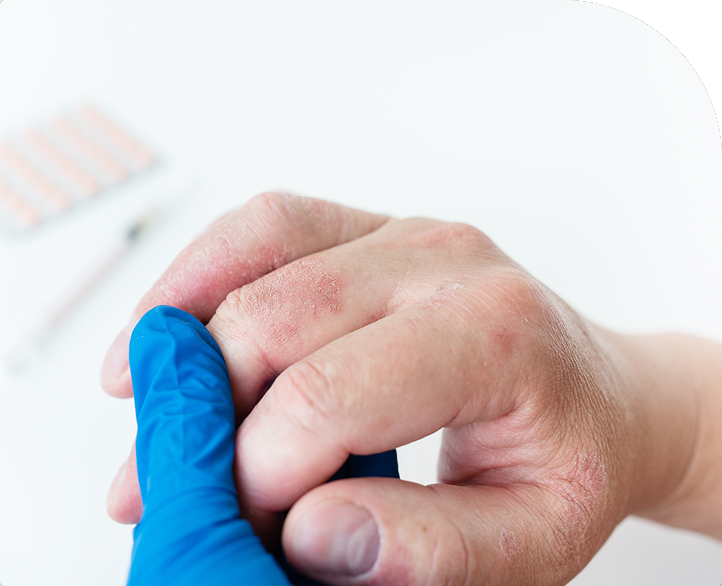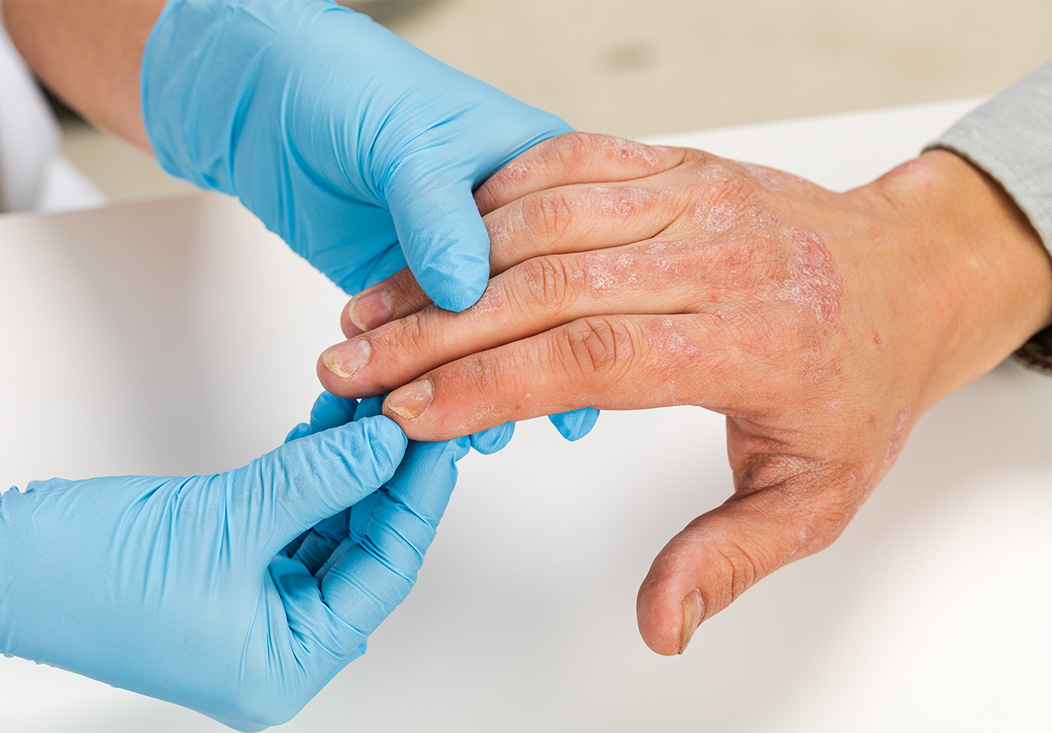Eczema also called atopic dermatitis, is an inflammatory skin condition that presents as a red, raised, itchy rash. It commonly begins in childhood but can affect people of all ages. Eczema is not contagious.
Eczema is caused by an overactive immune system response to certain triggers, like environmental or food allergens or chemical irritants. This immune response causes inflammation in the top layer of the skin, the epidermis, which makes it more prone to dryness and irritation.
Patients with a personal or family history of asthma and allergies are at higher risk for developing eczema.
Infants often have eczema on the scalp, neck, face, arms and legs, while adults commonly present with it on the face, front of the elbows, behind the knees, and hands and feet.
Symptoms of eczema in both children and adults are dry and itchy skin and a red and bumpy rash. Sometimes the rash will have small bumps that are filled with fluid that can leak when the skin is broken from scratching.



Eczema treatment varies due to its cause or triggers. Avoiding inflammatory or trigger foods can help alleviate symptoms, as can avoiding environmental or chemical allergens. The goal of eczema treatment for the scalp, face and body is to discover what factors will activate eczema so that they can be avoided or minimized. Eczema on the scalp can be treated with special shampoo, while eczema on the face, hands and body can be treated with topical creams and medications. In cases of severe eczema, it's important to make sure that the skin is not infected. Key factors for eczema treatment are supporting the immune system for a healthy and appropriate response to triggers and reducing the overall inflammatory response.
Your providers at Spark Health work as a team to understand your health goals and restore your health from the inside out. We know that every patient has unique health challenges and offer individualized treatment plans for optimal wellness. Spark Health was founded in 2013 in Solana Beach, California, to provide patients in San Diego and Southern California with personalized natural medicine and wellness options.
Eczema does not usually resolve on its own. Treatment is usually needed to first heal the skin, and then to uncover the underlying causes and reduce exposure to triggers.
Eczema can be present throughout childhood and adulthood, with flare-ups lasting several weeks.
Naturopathic medicine helps to manage and treat eczema by identifying underlying triggers and removing them while supporting a healthy immune response and decreasing overall inflammation.
The scalp can become very painful and uncomfortable with untreated eczema, with risk of skin infection from open sores. It can also lead to hair loss in areas of eczema outbreaks.
Topical prescription medications can help decrease eczema in a matter of days to weeks while seeing the benefit from removing triggers can take a little while longer.
Eczema typically starts at a younger age, but it can begin in adulthood. It usually gets better with age.
Eczema is considered a chronic condition, but symptoms can be kept under control with the right treatment. Avoiding known triggers, maintaining a healthy immune response and lowering inflammation will help keep eczema at bay.